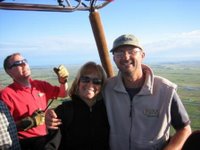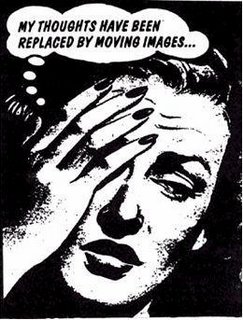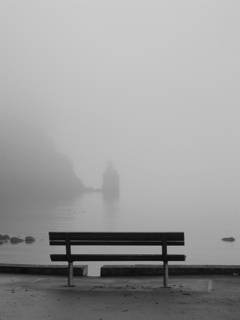Because my last few posts were perhaps a little overly erudite (hence one response from my Dad: "I need a translator to even understand your blog! Me--a baby boomer--has trouble grasping the concepts of you genXers!" ) . . . I decided to relieve you, the faithful readers (or "absorbers," as my good friend David put it) of my "electronic journal." I'm so incredibly sick of the word bl-g, by the way. Which is what my last post began as a response to, before it plummeted into the depths of media criticism.
Because I am also addicted to this site called the the Daily Mumps, which I discovered through Mark's Magnificent Page, I figured I've try my hand at some sarcasm. But maybe sarcasm isn't really effective if you pre-empt it like that. Oh well. Too late now. So, following in the witty style of the creator of that website, I've put together some captions for pictures I had just kickin' around. Enjoy!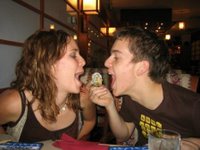 After decades of bitter and rancorous sibling rivalry, Jennifer and Matthew--although it took every last inch of their self-restraint--decided to share the last piece of sushi. It was a brave, though last-ditch attempt, at familial peace.
After decades of bitter and rancorous sibling rivalry, Jennifer and Matthew--although it took every last inch of their self-restraint--decided to share the last piece of sushi. It was a brave, though last-ditch attempt, at familial peace.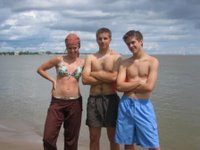
With the recent demise of their father's entrepreneurial ventures, the kids thought they should start pulling their weight around the house. The new tv series Falcon Beach may not have been their idea of good art, but it was a fine place to carve out a lucrative acting career. 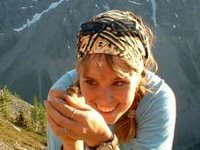 High on the treacherous Himalayan peaks, they had found the last surviving member of the long-extinct animal family. Now the only task that remained was transporting it back to camp where they could begin re-populating Earth with its former feathered creatures. It would be no small task, but they owed it to the world.
High on the treacherous Himalayan peaks, they had found the last surviving member of the long-extinct animal family. Now the only task that remained was transporting it back to camp where they could begin re-populating Earth with its former feathered creatures. It would be no small task, but they owed it to the world. 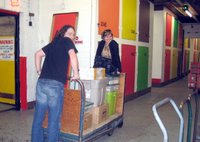
After getting over the initial loss of life on planet Earth, Jen and Mark embraced the possibilities of their new cube on Mars. Now the only trick was getting all that Ikea stuff to fit...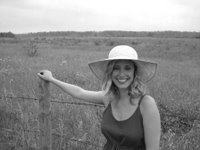 No really darlin', everythin's faaahne, I know exactly where the cows are...uh huh...now jes' pass me the whuskey dee-ar, come on, just hand it on over...
No really darlin', everythin's faaahne, I know exactly where the cows are...uh huh...now jes' pass me the whuskey dee-ar, come on, just hand it on over...
While the blissful, newly-engaged couple smiled for the camera, the hot air balloon attendant prepared himself for the worst.
Thhhhhhhhhhhhhat's all folks!
